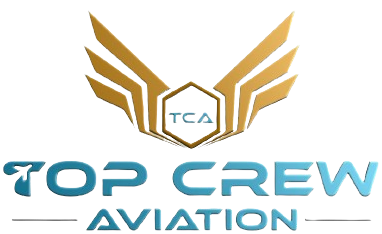
Introduction – The Journey Before the Cockpit
Becoming a pilot is a dream for many, but only a few take the journey to the skies. One of the biggest steps in this journey is life during ATPL training.
This is not just a simple course — it’s a stage where you gain deep knowledge, improve your flying skills, and prepare yourself for the professional world of aviation.
It is also one of the most demanding and rewarding times in a pilot’s life. You will face long study hours, tough exams, strict schedules, and sometimes self-doubt. But along with these challenges come achievements, confidence, and the pride of moving closer to your dream.
Let’s take a closer look at what happens during this important phase — the struggles, the achievements, and how it shapes you into a professional pilot.
A Typical Day in the Life during ATPL Training
Every day in ATPL training is planned with care so that you learn both theory and practical skills.
- Morning: Usually starts with classroom lectures on subjects like advanced navigation, meteorology (weather), air law, or aircraft performance. These topics are not light reading — they are detailed, technical, and need your full attention.
- Afternoon: Often reserved for simulator sessions. Here, you practice handling the aircraft in different situations — such as landing in bad weather, dealing with engine failures, or flying only with instruments.
- Evening: This is the time for self-study, revision, and assignments. Many students also join study groups to discuss difficult topics and share tips.
Days can be long and tiring, but the routine helps you prepare for the real world of professional flying, where discipline is key.
Academic & Technical Challenges
Life during ATPL training is very different from earlier pilot training stages. The syllabus is huge and covers topics like:
- Operational Procedures – How to handle different flight situations safely.
- Radio Navigation – Using advanced navigation equipment.
- Meteorology – Understanding weather patterns and their effect on flying.
- Flight Planning & Performance – Calculating fuel, route, and aircraft performance.
These subjects are not just about remembering facts. You have to understand and apply the knowledge in practical situations.
Exams are tough — in most cases, you need at least 75% marks to pass. Failing an exam means extra study time and sometimes extra costs. This pressure can be challenging, but it also pushes you to learn better and manage time effectively.
Physical & Mental Challenges
Training is not only about academics — your body and mind also need to be strong.
- Physical Challenges: Sitting for hours in classes or simulators can cause tiredness, back pain, and eye strain. You also might skip meals or eat unhealthy food due to a busy schedule.
- Mental Challenges: The constant need to study, prepare for exams, and perform in simulators can cause stress. There will be days when you feel you are not improving or when your performance is not up to the mark.
The best way to deal with this is to take care of your health — eat well, get enough sleep, and do light exercise daily. Keeping your body fit will also keep your mind sharp.
Financial Pressures
ATPL training is expensive. Apart from the training fees, you may have to spend on:
- Study materials and books
- Accommodation if you are away from home
- Transport
- Extra simulator time if needed
Some students take out education loans, while others get family support. Budgeting is important — keeping track of your expenses and avoiding unnecessary spending can make your life easier during training.
Rewards & Achievements Along the Way
Yes, ATPL training is hard, but it’s also full of rewards that make the struggle worth it.
- Knowledge Growth: You will understand aircraft systems, weather, navigation, and flight planning at a professional level.
- Confidence: Passing exams and doing well in simulator sessions will give you belief in your abilities.
- Professional Skills: You will learn teamwork, problem-solving, and decision-making — skills that are valuable in every aspect of life.
- Milestones: Clearing each subject, performing a perfect simulated landing, or getting praise from your instructor will motivate you to keep going.
Support Systems that Make Life Easier
One of the best parts of life during ATPL training is the people you meet along the way.
- Instructors: They are more than just teachers. Most have years of flying experience and give advice you won’t find in books.
- Fellow Students: They understand your struggles because they are on the same journey. Study sessions, group discussions, and even casual chats can keep you motivated.
- Family & Friends: They are your emotional support. A simple call or message from them can make a tough day better.
- Digital Tools: Online mock tests, aviation forums, and mobile apps can help you revise and stay updated.
How ATPL Training Shapes Your Career
Finishing ATPL training is a big achievement. It shows airlines that you:
- Have strong technical knowledge
- Can work under pressure
- Can work in a team
- Are disciplined and professional
Your performance during training can also help you build connections in the aviation industry. The habits you develop — like time management, quick decision-making, and clear communication — will stay with you throughout your flying career.
Tips to Do Well in ATPL Training
Here are some simple tips to make your life during ATPL training smoother:
- Plan Your Day: Keep fixed times for study, simulator practice, and rest.
- Stay Healthy: Exercise lightly, eat balanced meals, and sleep well.
- Use Active Learning: Instead of just reading notes, test yourself and explain topics to others.
- Take Breaks: Short breaks during study sessions help you remember better.
- Stay Positive: Failures are part of learning. Keep moving forward.
The Emotional Journey – From Struggle to Success
Life during ATPL training is not just about flying — it’s also about personal growth.
At first, you may feel nervous and overwhelmed by the workload. Midway, you might experience frustration if you face difficulties in understanding topics or passing exams. But with time, your skills improve, your confidence grows, and you start seeing yourself as a professional pilot.
The day you complete your training and hold your ATPL in your hand is unforgettable. All the stress, sleepless nights, and hard work suddenly feel worth it.
Conclusion – The Challenges Make the Rewards Sweeter
Life during ATPL training is a mix of long hours, high pressure, and constant learning. It tests your knowledge, patience, and determination. But it also builds your skills, confidence, and career.
The challenges you face will prepare you for the reality of being a pilot — making quick decisions, handling pressure, and staying professional in every situation. And the rewards? They last a lifetime.
💡 If you want to learn about ATPL ground classes, read our detailed guide.
FAQ’s
- What is life during ATPL training like?
It’s intense, with long study hours, simulator practice, and tough exams, but also rewarding with career growth. - Is ATPL training hard?
Yes, it’s challenging due to a vast syllabus, strict exams, and high performance standards. - How long does ATPL training take?
Usually several months to over a year, depending on the school and country. - How do I prepare for ATPL training?
Build good study habits, stay fit, and review navigation and meteorology basics. - What are the rewards after ATPL training?
You gain knowledge, skills, and eligibility to work as an airline pilot.
Frequently Asked Questions
No FAQs found.



